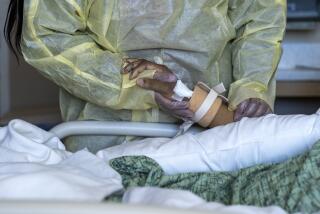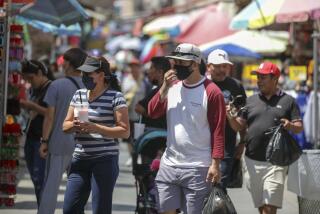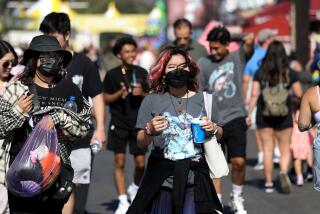First one death in the family, then another, and the toll kept mounting for Inglewood couple
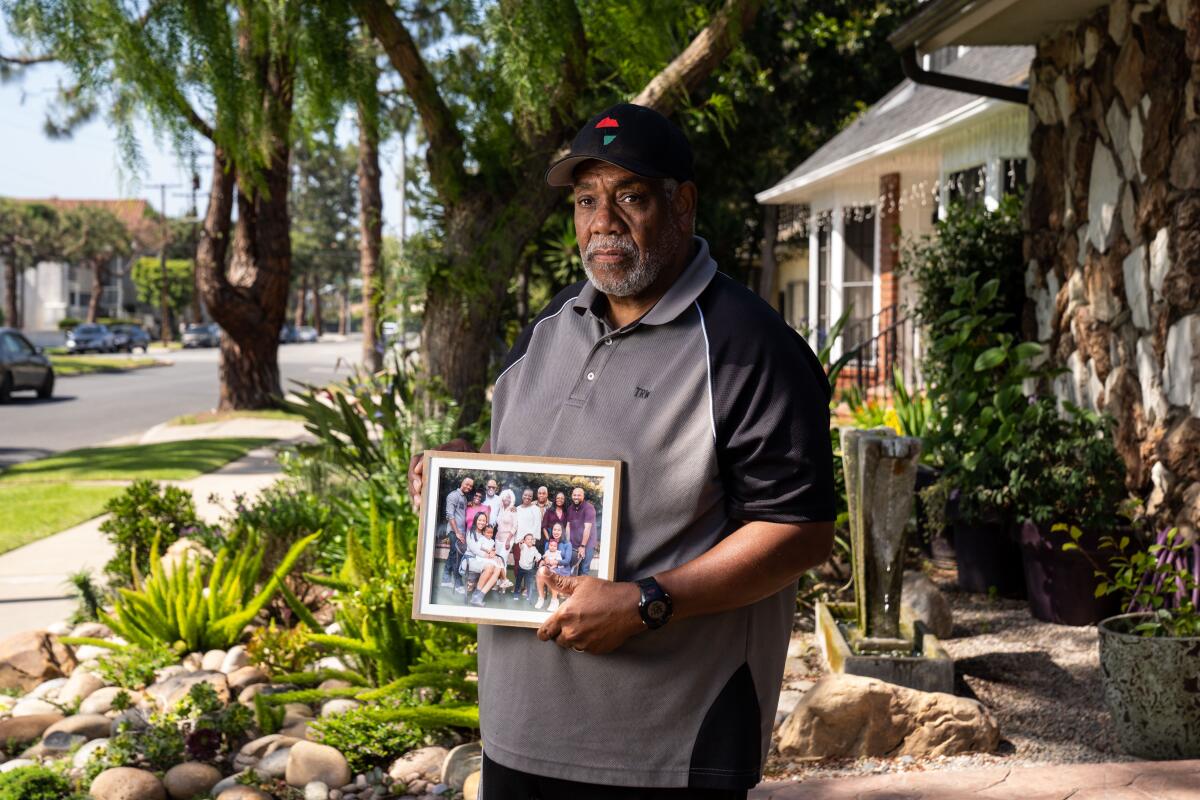
- Share via
The first death from COVID-19 came toward the end of the first week of May, and that alone was hard enough to deal with.
Then came another death in the family, and another, and another.
Inglewood resident Tony Wafford and his wife Diane Walker lost four relatives to COVID-19 in a week.
“They were dropping so fast, I couldn’t even register the loss,” said Wafford. “My house looked like a florist’s shop, with flowers and fruit coming in from every direction.”
Walker, a retired Los Angeles County Sheriff’s Department commander, counted off the deaths. First, her 63-year-old brother died in Baltimore and exactly one week later Wafford’s 60-year-old brother died in Cincinnati. In between, Wafford lost a 49-year-old nephew in Brooklyn and a 50-year-old nephew in Dallas.
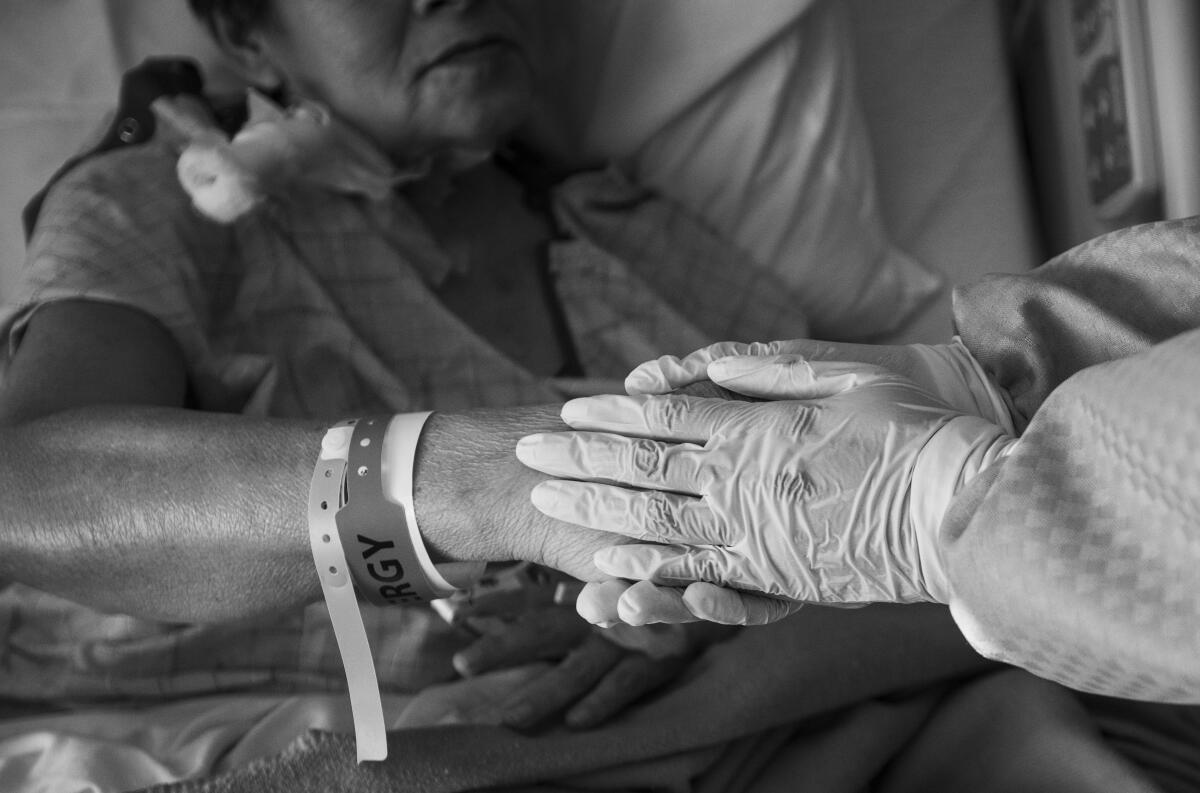
Wafford learned of his Dallas nephew’s death when “my daughter called, crying,” he said. “That was her first cousin.”
For Wafford, grief and rage are sometimes hard to separate. For decades, he has worked as a community activist to address disparities in disease rates among people of color. As he sees it, the coronavirus is no equalizer. It seeks out injustice and piles on, in Baltimore, in New York, in New Orleans, in Los Angeles and just about everywhere else it has hit, hitting African American families like his particularly hard.
“COVID comes in and takes advantage of all the other issues you have,” Wafford said, “and with black people being No. 1 with every health problem known to man, it’s just wreaked havoc.”
According to L.A. County health data, black people have been twice as likely to die of COVID-19 as white people, with the Latino death rate almost as high as that among blacks. According to the county, people living in the most impoverished areas died of COVID-19 at a rate of 29 per 100,000, compared with eight per 100,000 in some of the county’s most affluent areas.
Wafford said that among the four relatives he lost, only his brother could be called indigent. But at least two of the other three had underlying health issues, despite being middle-class. Wafford questioned the quality of the healthcare they got, and he also worries that his wife’s brother and his own brother may not have been as vigilant as they should have been about protecting themselves with masks and distancing.
“It is such a tragic irony that Tony’s family is going through this,” said UCLA psychologist Dr. Gail Wyatt, who told me she has worked with Wafford on public health outreach projects for more than 30 years. Wafford is the one who goes into the community and educates people who may not trust the healthcare system about what is available to them, whether for AIDS treatment or COVID-19 prevention.
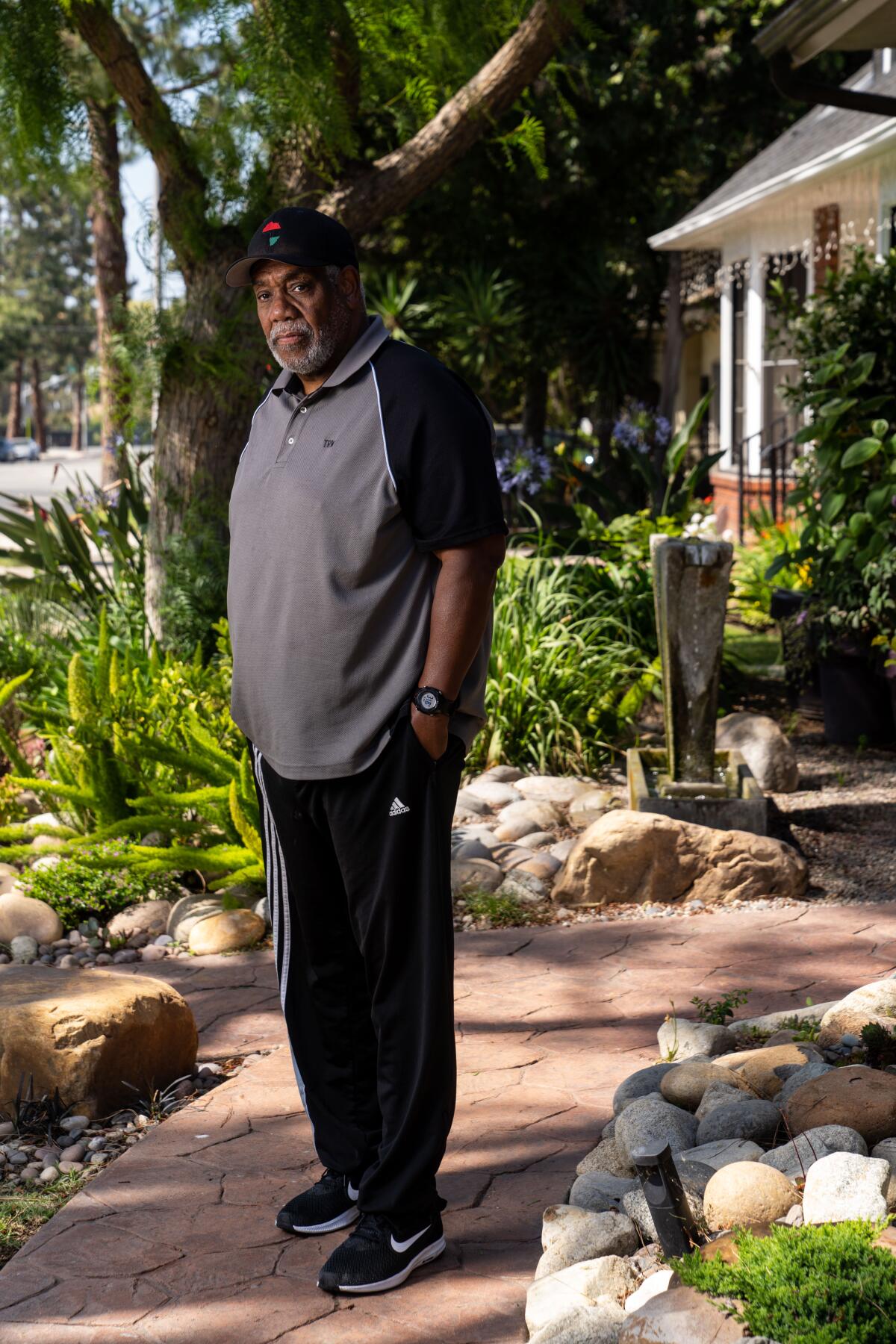
Wyatt has seen up close how higher rates of diabetes and cardiovascular disease among low-income people and minorities put them at high risk for whatever ailment comes along. “All that’s changed is the disease” he said.
They live in our most environmentally unhealthy and dangerous neighborhoods. They don’t always have access to good schools or to convenient, quality healthcare. They struggle with trauma and the stress of daily struggle, and healthy food is not always easy to get or affordable.
“If we knew how to take better care of ourselves, we wouldn’t be at such risk,” said Wyatt. “This is a battle people themselves have to be engaged in. We don’t talk enough about healthcare. We talk about food, games, celebrities. But we don’t talk about health.”
Wafford had been working of late at a South Los Angeles clinic where he leads sessions on sexual and cardiovascular health. Dr. Wilbert Jordan, who runs the clinic, told me he learns a lot about his patients and the economic and cultural reasons for high rates of disease when he visits them in their homes.
“You might see eight people sleeping to a room. This is true of some blacks and some Latinos,” Jordan said, and if one person is sick, everyone else in the room may soon be.
Jordan added that the spread of the virus might also have been fueled by faith, in a manner of speaking.
“Drive down any street in South Los Angeles and you’ll pass four or five small storefront churches,” said Jordan, who suspects that, before social distancing began, congregants meeting in tight quarters may have been exposed.
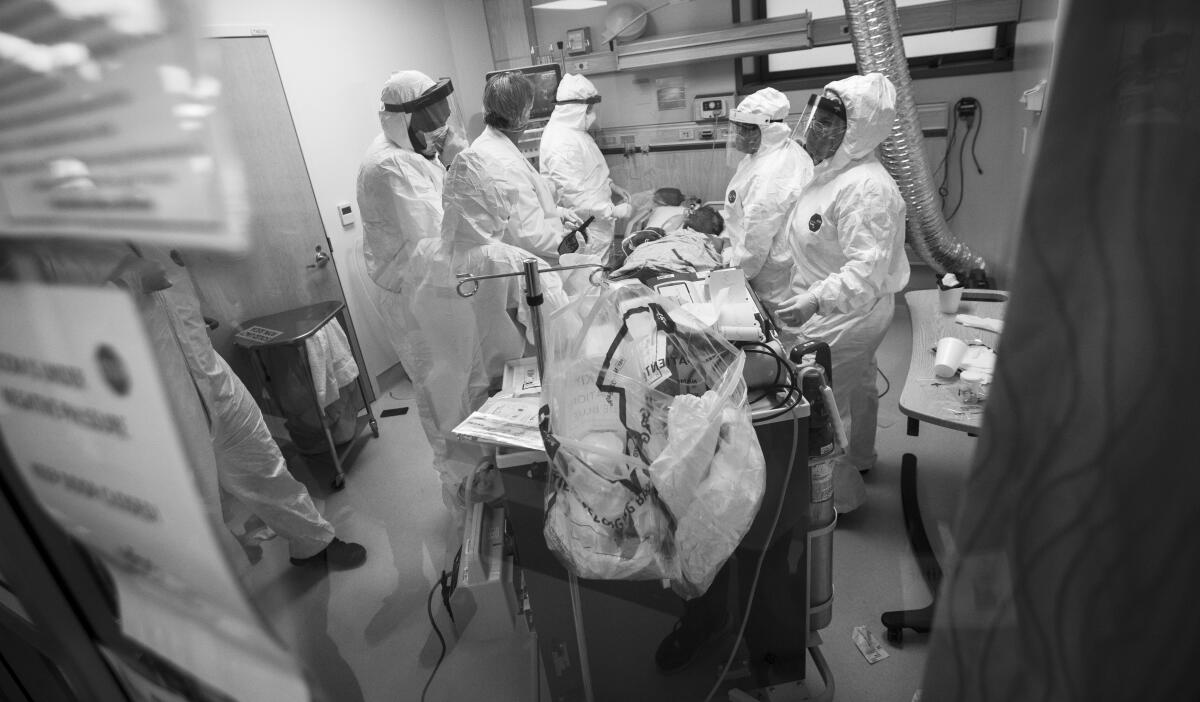
On Friday morning, Dr. Elaine Batchlor got a text informing her of an increase in the number of COVID-19 patients on ventilators at Martin Luther King Community Hospital, where she is the chief executive. The total number of patients hospitalized at MLK with the virus has remained fairly stable, at around 30, Batchlor told me, but even without a pandemic, the hospital’s daily challenge is monumental.
“In South L.A. we have a baseline of chronic disease that is poorly treated,” Batchlor said.
“We have over 100,000 visits to our ER each year because of the high rates of diabetes, hypertension, pulmonary disease and mental health conditions. The rate of diabetes is over three times higher than average, and amputations are among our most frequent procedures,” Batchlor continued.
“The average life expectancy in South L.A. is 10 years shorter than the California average.”
Why? Because 12% of the patients have no insurance at all and 70% have Medi-Cal, which means that the hospital has trouble recruiting doctors to work for the low reimbursement rates offered by the government health program.
And as if that isn’t a sad enough commentary on how fractured and unbalanced the healthcare system is in the world’s wealthiest nation ever, consider this:
The state’s projected $54-billion budget deficit has led to proposed cuts that include elimination of a supplemental fund that was established for King Community Hospital when it opened five years ago. Batchlor said her hospital stands to lose $30 million.
“That’s a devastating cut. We’d have to close some services and eliminate some physicians,” said Batchlor. “Thirty million dollars is 10% of the budget.”
The proposed cut from Sacramento might be a tool to pry more money out of the federal government for budget gaps created by the pandemic. But just in case its doesn’t work, L.A. County Supervisor Mark Ridley Thomas says he and his colleagues are already lobbying state and federal officials to spare King Community Hospital from crippling cuts.
“We absolutely have to keep the pressure up,” said Ridley Thomas. “There is no sector that has more profound healthcare needs than the southeast quadrant of the county.”
Wafford, 63, said one of the hardest things about his family’s ordeal was that loved ones couldn’t gather to honor those who had “transitioned,” as he called their passing. Shaken by the lethal force of the virus, Wafford said he went in for a COVID-19 test. Two weeks later, he still hadn’t gotten the results. (I am still waiting, as of Friday, for the results of my own test, but I only had mine on Monday.)
Wafford said he was reminded of words spoken in 1966 by Dr. Martin Luther King Jr.:
“Of all the forms of inequality, injustice in healthcare is the most shocking and inhumane.”
“That’s more than 50 years ago,” Wafford said, “and it’s absolutely worse now.”
steve.lopez@latimes.com
More to Read
Sign up for Essential California
The most important California stories and recommendations in your inbox every morning.
You may occasionally receive promotional content from the Los Angeles Times.

